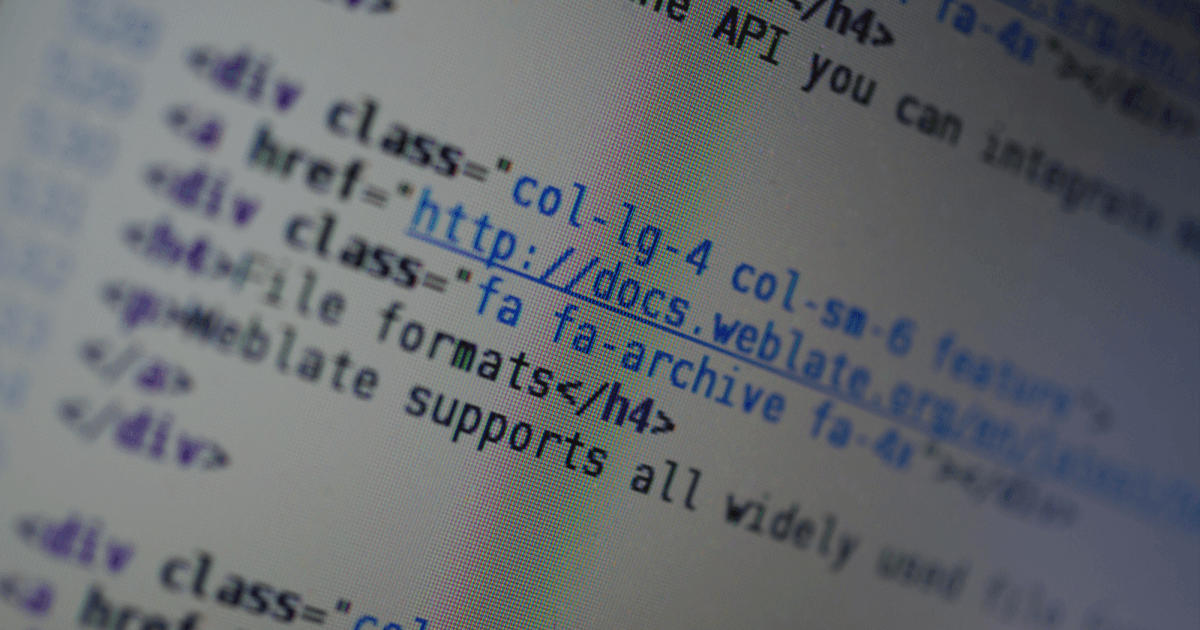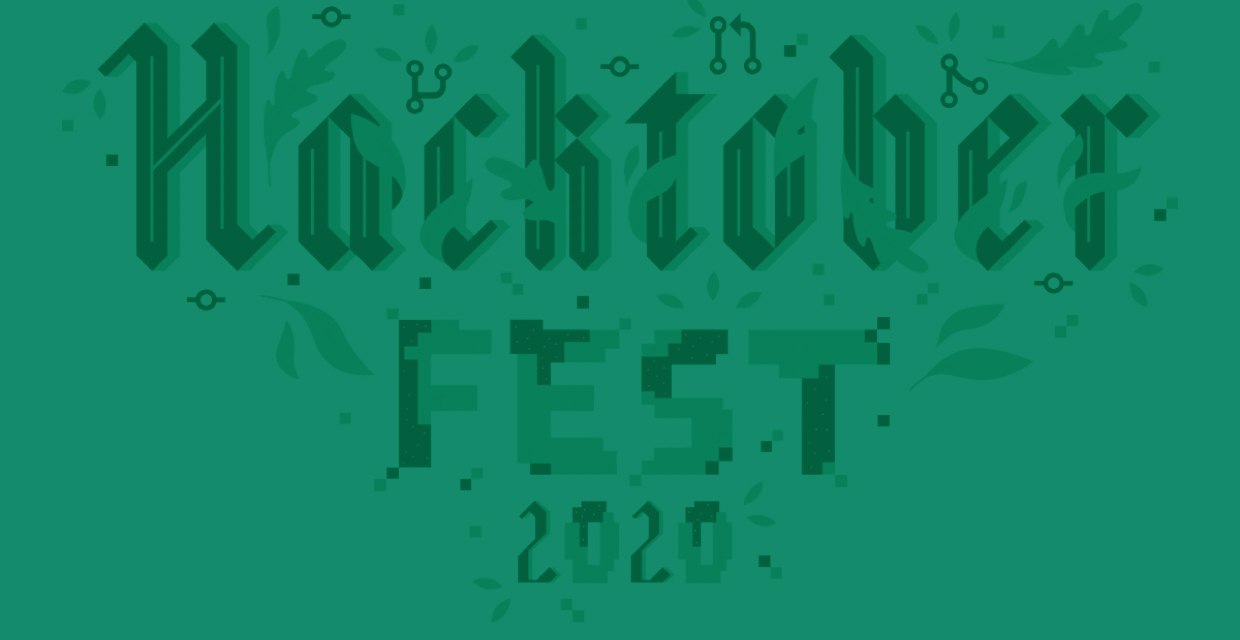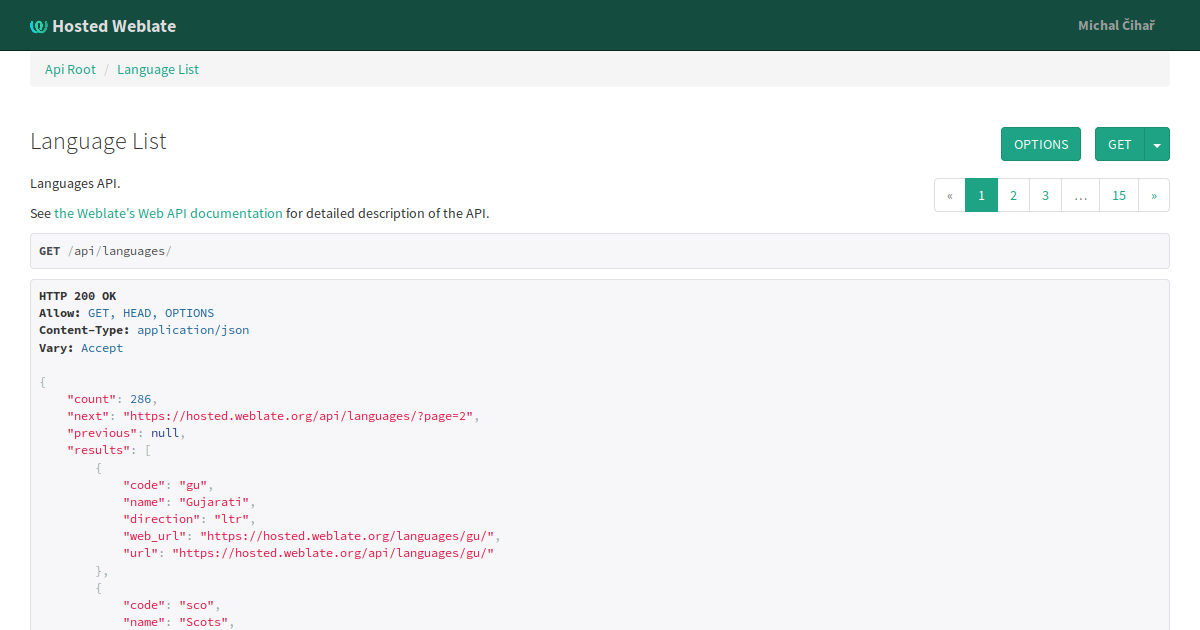Weblate has started to use HackerOne Community Edition some time ago and I think it's good to share my experience with that. Do you have open source project and want to get more attention of security community? This post will answer how it looks from perspective of pretty small project.
I've applied with Weblate to HackerOne Community Edition by end of March and it was approved early in April. Based on their recommendations I've started in invite only mode, but that really didn't bring much attention (exactly none reports), so I've decided to go public.
I've asked for making the project public just after coming from two weeks vacation, while expecting the approval to take some time where I'll settle down things which have popped up during vacation. In the end that was approved within single day, so I was immediately under fire of incoming reports:
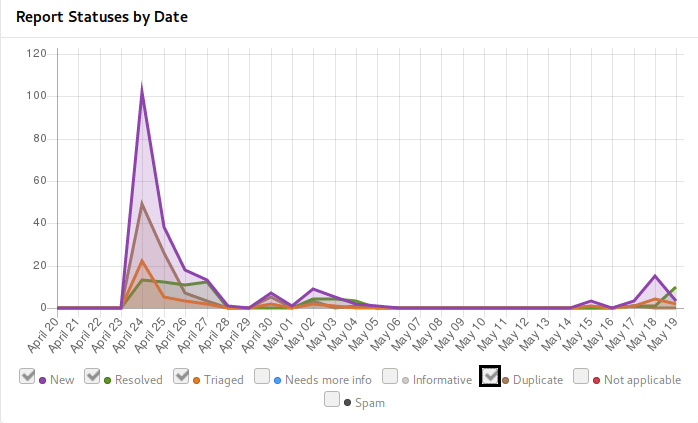
I was surprised that they didn't lie - you will really get huge amount of issues just after making your project public. Most of them were quite simple and repeating (as you can see from number of duplicates), but it really provided valuable input.
Even more surprisingly there was second peak coming in when I've started to disclose resolved issues (once Weblate 2.14 has been released).
Overall the issues could be divided to few groups:
- Server configuration such as lack of Content-Security-Policy headers. This is certainly good security practice and we really didn't follow it in all cases. The situation should be way better now.
- Lack or rate limiting in Weblate. We really didn't try to do that and many reporters (correctly) shown that this is something what should be addressed in important entry points such as authentication. Weblate 2.14 has brought lot of features in this area.
- Not using https where applicable. Yes, some APIs or web sites did not support https in past, but now they do and I didn't notice.
- Several pages were vulnerable to CSRF as they were using GET while POST with CSRF protection would be more appropriate.
- Lack of password strength validation. I've incorporated Django password validation to Weblate hopefully avoiding the weakest passwords.
- Several issues in authentication using Python Social Auth. I've never really looked at how the authentication works there and there are some questionable decisions or bugs. Some of the bugs were already addressed in current releases, but there are still some to solve.
In the end it was really challenging week to be able to cope with the incoming reports, but I think I've managed it quite well. The HackerOne metrics states that there are 2 hours in average to respond on incoming incidents, what I think will not work in the long term :-).
Anyway thanks to this, you can now enjoy Weblate 2.14 which more secure than any release before, if you have not yet upgraded, you might consider doing that now or look into our support offering for self hosted Weblate.
The downside of this all was that the initial publishing on HackerOne made our website target of lot of automated tools and the web server was not really ready for that. I'm really sorry to all Hosted Weblate users who were affected by this. This has been also addressed now, but the infrastructure really should have been prepared before on this. To share how it looked like, here is number of requests to the nginx server:
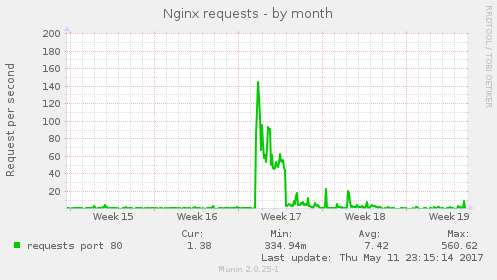
I'm really glad I could make Weblate available on HackerOne as it will clearly improve it's security and security of hosted offering we have. I will certainly consider providing swag and/or bounties on further severe reports, but that won't be possible without enough funding for Weblate.
